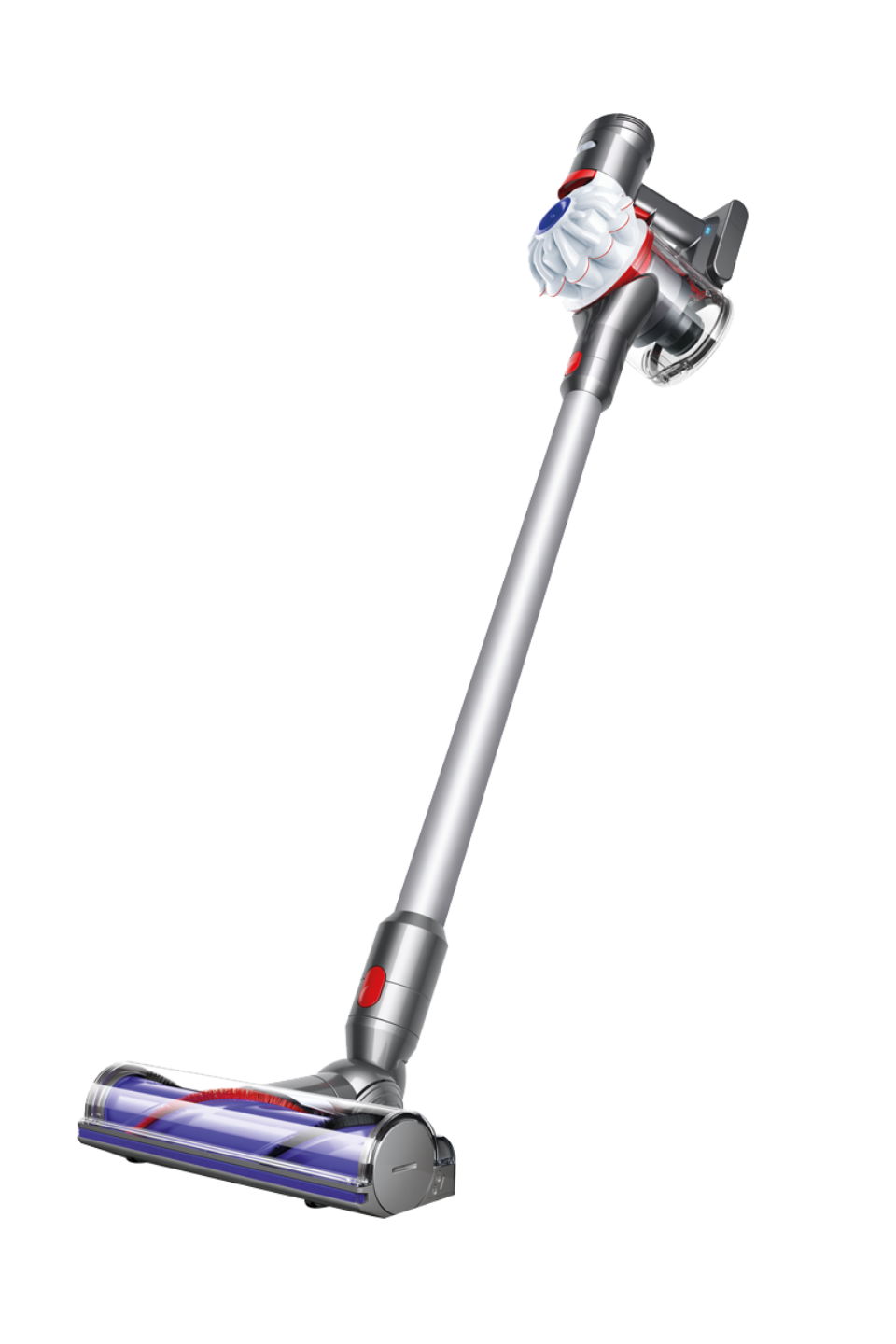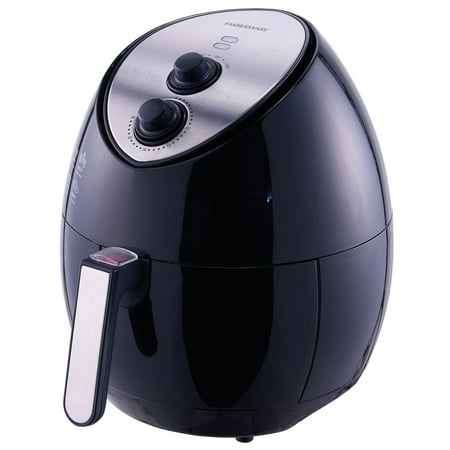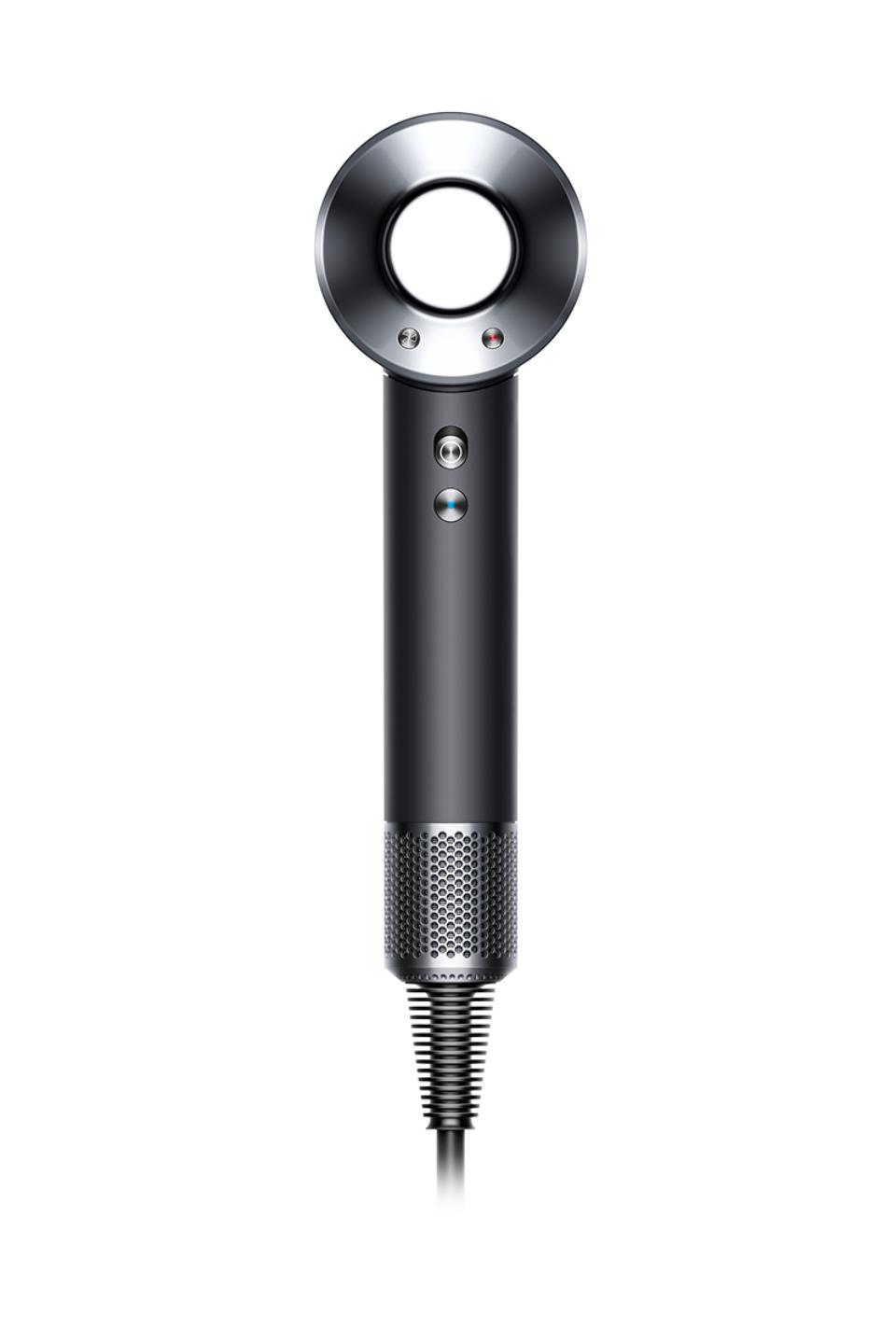Dyson V7 Absolute Cordless Vacuum Cleaner with up to 30 Minutes Run Time
Up to 30 minutes run time from a single charge. Bristles work hard to remove stubborn, ground-in dirt. Nifty tool makes it easy to reach under sofas and beds. Cyclones separate air and dust for powerful cleaning.
This Dyson cordless vacuum cleaner is a must-have addition to any household. It can run for 30 minutes from a single charge, so you’ll be able to give each room a clean without it needing an added boost. The Direct Drive cleaner head comes with sturdy bristles, and these are spun by the motor to drive out embedded dirt and hair from surfaces. If you need to pick up a few dust bunnies from underneath the sofa, the Reach Under tool lets you get into tricky spaces easily. This model has 2 Tier Radial™ cyclone technology, which separates dust and air inside the vacuum, giving you better suction. And because it’s lightweight, you’ll never struggle to reach the ceiling coving or on top of the wardrobe either.
- Up to 30 minutes run time from a single charge
- Bristles work hard to remove stubborn, ground-in dirt
- Nifty tool makes it easy to reach under sofas and beds
- Cyclones separate air and dust for powerful cleaning
- Lightweight – great for cleaning from room to room
Additional information
| Dimensions | (H)21.0 x (W)25.0 x (D)124.3 |
|---|---|
| Manufacturer Warranty | 2 Year |






by Amelia
Bought to replace an old and worn out Dyson V6. Works like a dream, so quiet and light and so much more convenient than a traditional plug in vacuum. Wouldn’t be without it! Battery also lasts for ages, I can clean the whole house including stairs and it’s still going.
by Jane
There wasn’t much explanation in the manual of what each tool is best used for, it is much better to watch the videos and the Dyson website to see this machine in action. I have used this far much more than I anticipated because it is so easy to clip together and unclip! I had already vacuums my dressing room the morning that this Dyson was delivered, as soon as the Dyson was charged I vacuumed the dressing room again- the amount of extra dirt this little machine picked up almost fills the drum. Eww! I am completely delighted with it.
by Terry
Does what it says on the tin , very flexible cleaner covering all awkward places and great all round.
by Karen
Great hoover.
by Patrick
Very happy with the product. No issues. 1st class delivery service from ao notified by txt of delivery window.
by Jackie
Very pleased with this. Works really well. Obviously Shark are the best when it comes to vacuum cleaners but they’re generally too heavy for me whereas this one is just right. The downside is only 30 minutes run time. Could have been much better. Lots of attachments so very happy at the moment. However only had it a week.